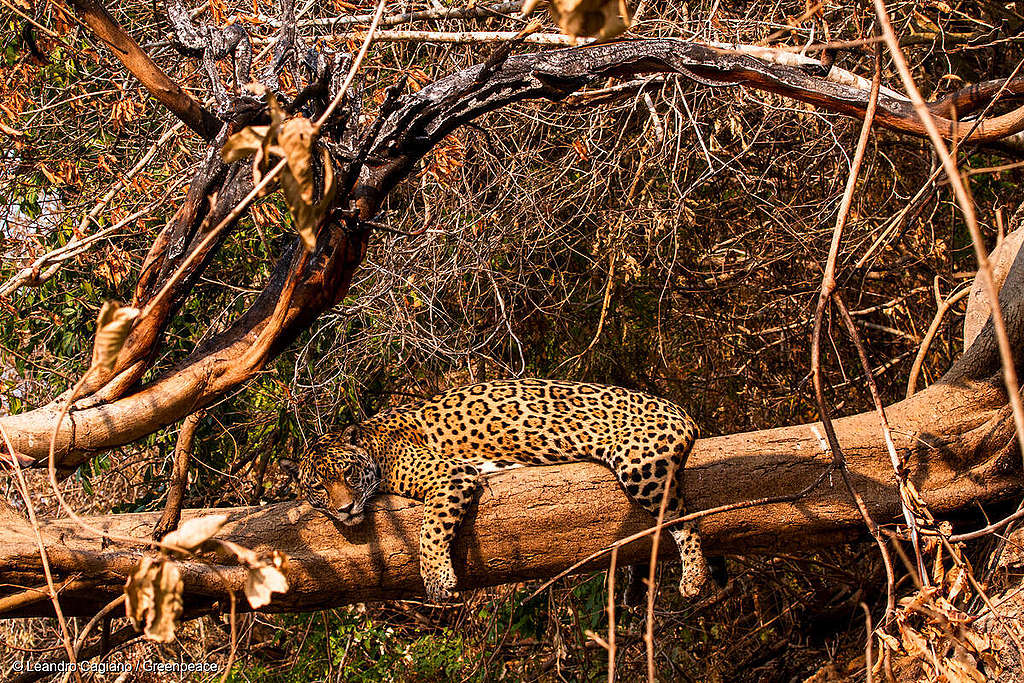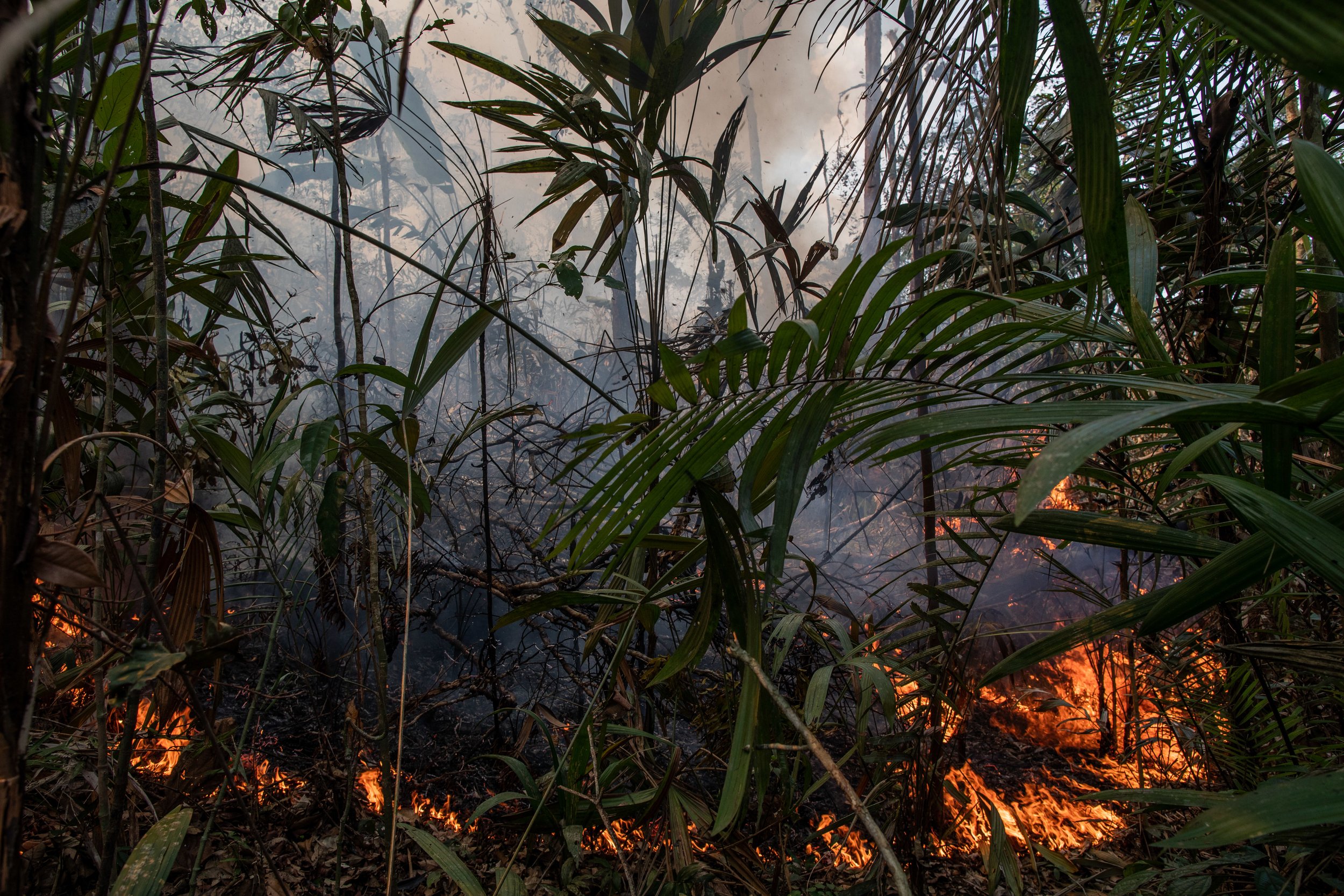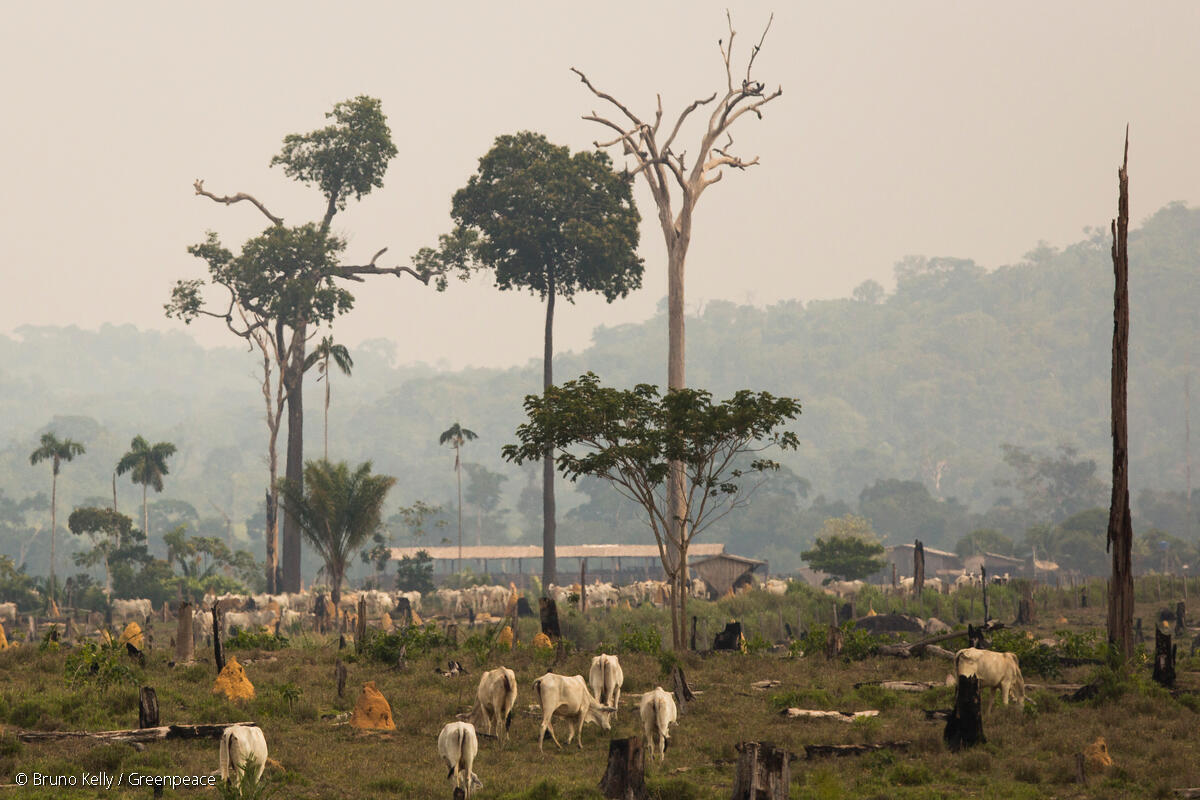Brussels – Next week, the European Parliament is due to officially adopt a ground-breaking piece of environmental law that will cut Europe’s contribution to global forest destruction, and guarantee people in the EU that a range of products they buy are not linked to deforestation and forest degradation. The European Parliament is scheduled to vote on this on 19 April, and European ministers are expected in turn to officially adopt the text next month.

The new law will apply to seven commodities – soy, palm oil, cattle, wood, cocoa, coffee and rubber – and cover products made with them such as chocolate, tyres or wooden furniture. To sell these commodities and products in the EU, companies will have to show that they don’t come from land where forest has been destroyed or degraded after 31 December 2020, and that they are produced legally.
Greenpeace criticised the agreement reached by national governments and the European Parliament last December for leaving a number of gaps open in the law, such as no obligations placed on European financial institutions and the exclusion of other ecosystems such as savannah and wetlands. Greenpeace also highlighted weaknesses in the legal language which does not guarantee that products comply with internationally recognised human rights law, or have not come from areas where harmful logging practices cause forest degradation.
Greenpeace EU forest campaigner Sini Eräjää said: “Forests are home to irreplaceable species, are essential for a safe climate and provide livelihoods to Indigenous Peoples who live in and protect them. With this new law, the EU is taking a big first step to end its complicity in the reckless destruction of these life-support systems, but it is only a first step. The clearing of wetlands, grasslands and other priceless ecosystems for agricultural expansion must stop, along with European banks financing nature-destroying projects.”
The law will enter into force shortly after its adoption, but will not apply to big and medium-sized companies until 18 months later, and 24 months later for small and micro enterprises. In the meantime, national governments will have to define the penalties for breaking the law and designate the national competent authorities responsible for enforcing it. For its part, the European Commission will adopt a ranking system to list countries as low-, standard- or high-risk for deforestation and forest degradation.
Law under review
In the first two years after entry into force, the European Commission is due to decide whether some of the gaps in the new legislation should be closed. Within one year, the Commission will consider whether to extend protection to wooded land other than forests. Within two years, a review will consider whether to widen protection to other natural ecosystems, such as grasslands, peatlands and wetlands, as well as to regulate European financial institutions to prevent them from contributing to forest destruction, and to broaden the list of commodities and products covered by the law. The definition of forest degradation will be subject to a review within five years.
Other ecosystems
The European Commission has acknowledged that there is a risk that by protecting only forests under this law, destructive farming practices could shift even further to other carbon- and biodiversity-rich natural ecosystems such as grasslands and wetlands to supply the EU market. Irreplaceable natural areas, like the Pantanal and the Cerrado in South America, already suffer from agricultural expansion including products that are sold on the EU market, like soy for animal feed and beef. The decisions that the Commission will take in the next two years, whether to extend the protection of the law to other natural ecosystems beyond forests like other wooded land, grasslands and wetlands, will have a major impact on their future.
Destructive financing
While the EU will now require that products sold on its market comply with a deforestation-free standard, its financial sector will still be allowed to provide financial services to companies linked to forest destruction.
A report from Global Witness published in 2021 revealed that between 2016 until 2020, EU-based banks provided €30.6 billion worth of deals to 20 agribusinesses accused of deforestation. Analysing more than 70,000 share, bond, credit and underwriting deals, the report estimated those EU-based banks had made approximately €401 million in profits.
As a result of the persistence of the European Parliament during the legislative process, the European Commission has committed to evaluating the role of financial institutions in preventing financial flows, which contribute directly or indirectly to deforestation and forest degradation, and to deciding within two years whether to impose obligations on them.
Contacts:
Sini Eräjää, Greenpeace EU campaigner: [email protected] +32 (0)476 97 59 60
Greenpeace EU press desk: +32 (0)2 274 1911, [email protected]
For breaking news and comment on EU affairs: www.twitter.com/GreenpeaceEU
Greenpeace is an independent global campaigning network that acts to change attitudes and behaviour, to protect and conserve the environment and to promote peace. We do not accept donations from governments, the EU, businesses or political parties. Greenpeace has over three million supporters, and 26 independent national and regional organisations with offices in more than 55 countries.
EU Transparency Register: 9832909575-41



